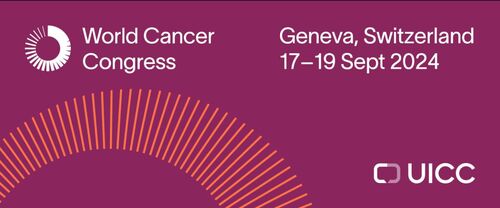Publication Ethics
Our publication ethics and publication malpractice statement is based on the COPE - Code of Conduct and Best-Practice Guidelines for Journal Editors. Our journal follows the ICMJE's Recommendations for the Conduct, Reporting, Editing and Publication of Scholarly Work in Medical Journals (December 2019 update). In addition, we adhere to the standards on scholarly publishing as per the US NIH notice NOT-OD-18-011.
Ethics
All research submitted for publication in Cancer Prevention and Care, must have been carried out within an appropriate ethical framework. Research involving human subjects, human material, or human data must have been performed in accordance with the Declaration of Helsinki (as revised in 2013) and as per Good Clinical Practice.
For all research involving human subjects, informed consent to participate in the study should be obtained from participants or their guardians in the case of children. Identifying information of any form will not be published unless it is essential for scientific purposes and the patient (or guardian) gives written informed consent on its publication. Should a manuscript report on research provide any material that needs informed consent, then an ad hoc "Statement of Informed consent" will be published in the pdf of the article alongside the ICMJE Conflict of Interest Statement in the final published manuscript.
When reporting on experiments on animals the authors should indicate which institutional and national standards for care and use of laboratory animals were followed. Should a manuscript report on research that has been performed with animal subjects then an ad hoc "Statement of Animal Rights" will be published in the published manuscript alongside the ICMJE Conflict of Interest Statement.
All research must have been approved by an appropriate research ethics committee or institutional review board (IRB). The editors will seek assurances that all research has been approved by an appropriate ethics committee and that ethics approval numbers will be requested.
Plagiarism
Cancer Prevention and Care investigates into all cases of publication misconduct and uses the CrossCheck’s plagiarism detection software. The software checks submissions against millions of published research papers, documents on the web, and other relevant sources. All articles submitted to Cancer Prevention and Care are assessed through Ithenticate, and during all stages of revisions. If plagiarism or misconduct is found, immediate actions will be taken, including but not limited to the retraction of the article and publication of a retraction notice.
The journal adheres to COPE guidelines for handling potential issues of plagiarism.
Appeals
If any authors are unhappy with the decision on their article, they may appeal to the Editorial Office, giving a reason why they feel the decision was incorrect. Any appeal will be reviewed by a handling editor and a final decision will be made. Please note that authors may only appeal once.
Editorial Freedom
The editors have full authority over the journal's editorial content. The Editor-in-Chief is supported by an expert international editorial board comprised of individuals with relevant research, academic and or policy expertise. Together they make decisions on the validity and integrity of the submitted manuscripts in light of the journal's aim and scope. Upon recruitment to their position, editors are provided with documentation to support their activities, including their code of conduct, how to perform peer review, the confidentiality of information they may view, and how to handle suspected author misconduct.
The Editorial board's composition is regularly reviewed, while clear guidance to editorial board members about their expected functions and duties is provided. The editorial board is also engaged twice a year to be informed on updates on publication ethics and journal strategic development.
The publisher, and none of its core administrative members, is not involved in the manuscript decision making process.
Provenance and peer review
All articles submitted to Cancer Prevention and Care undergo double blind peer review. Every original article is peer reviewed by a minimum of two external experts and one member of the editorial board. In all cases the manuscript is also reviewed by at one Editor-in-Chief. Letters to the Editor and Editorials are peer reviewed internally. All journal content is clearly marked as whether peer reviewed or not (internally vs. externally peer reviewed). All articles have a specific provenance and peer review tab (commissioned vs. non commissioned).
Authors may suggest external reviewers that are qualified to peer review the manuscript, provided that they have not collaborated closely in the near past and that they are not from the same institution. Authors may also note peer reviewers who they would not prefer to review this paper. While the authors suggestions are taken into account, the Editorial Office reserves the right to handle double blind peer review at its discretion. Any manuscripts received for review will be treated as confidential documents.
External peer reviewers are requested to report on the ethical aspects of the manuscript they are allocated to review and are requested to report also on the novelty, the impact, the statistical analysis, references and potential conflicts of interest. A specific peer review form is provided with closed and open based questions so as to rate the manuscript and provide comments.
Corrections & Retractions
Should authors or reviewers identify an error in a manuscript, a correction letter will be published indicating where the mistakes were made, while the original source will be immediately corrected. In general, the COPE Guidelines for Retracting Articles are followed in this case. When faced with suspected misconduct the Editor-in-Chief is advised to follow the relevant COPE Flowcharts. Corrections and retractions
Corrections
Cancer Prevention and Care will issue corrections or other post-publication updates when there are expressions of concern regarding published content. We wish to make peer-review publishing edifying, and hence, we consider it to be our responsibility to keep the readers informed of any possible changes that might occur to published material. Cancer Prevention and Care adheres to COPE guidelines for corrections and retractions.
Corrigendum
A corrigendum refers to a change in a published article, that the authors consider of critical impact. Authors wishing a corrigendum on their article are advised to contact the editorial office and explain the situation, though the editors of the journal are responsible for the final decision on whether the change essentially affects the article's meaning or conclusions. Cases that are typical examples of corrigendum requests are:
▫ Errors in table numbers or figures – given that they do not alter the conclusions of the article.
▫ Errors in statistical data that do not alter the article's conclusions.
▫ When the list of authors needs to be updated or in case authors have been omitted or mistakenly accredited.
▫ Reference lists that need to be updated or in case authors have omitted to cite material used during their research.
When proceeding with corrigenda, the original uncorrected articles remain in place, with an additional note stating that the articles have further corrections and the corresponding DOI numbers.
Erratum
An erratum is published when errors occur in the article by the publisher during the production process. In case these errors are not tracked before publication and play a significant role in the article's comprehension or meaning, authors can contact the editorial office and require the publication of an erratum. When proceeding with an erratum, the original uncorrected articles remain in place, with an additional note stating that the articles have further corrections and the corresponding DOI numbers.
Typographical errors that do not alter the meaning of the articles are not considered as significant reasons to proceed with errata or corrigenda.
*Author name changes on published articles
Since there are a variety of reasons why an author may change their name in the course of their career and wish to update their published articles to reflect this change, our journal will follow the authorship guidelines issued by COPE updating articles where authors make requests for their own name change, without the requirement for an accompanying correction notice. Pronouns accompanying author statements will also be updated as part of the name change if required. Consequently, all metadata, pdf, and HTML versions, as well as content supplied to indexing services, will be updated accordingly by resupplying them with the new article versions.
Retractions
Cancer Prevention and Care abides by COPE guidelines and recommendations in cases of potential retraction. Editors will consider retraction of an article if there is evidence that findings are unreliable or have been previously published elsewhere, if the article constitutes plagiarism that was not detected in previous checks, in case of data used in the article without the appropriate authorization, or in case of unethical research on human subjects, or if a major competing interest is not stated properly.
Retractions are clearly identified and linked to the original article, state the reason of retraction using simple and objective language and are published as soon as possible to minimize the potential use of unreliable data.
We process personal data collected when visiting the website. The function of obtaining information about users and their behavior is carried out by voluntarily entered information in forms and saving cookies in end devices. Data, including cookies, are used to provide services, improve the user experience and to analyze the traffic in accordance with the Privacy policy. Data are also collected and processed by Google Analytics tool (more).
You can change cookies settings in your browser. Restricted use of cookies in the browser configuration may affect some functionalities of the website.
You can change cookies settings in your browser. Restricted use of cookies in the browser configuration may affect some functionalities of the website.



